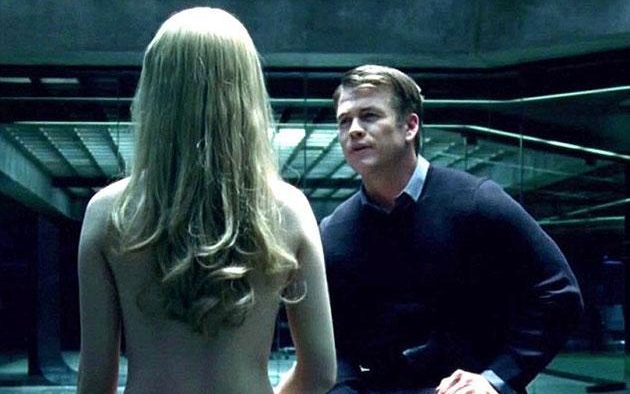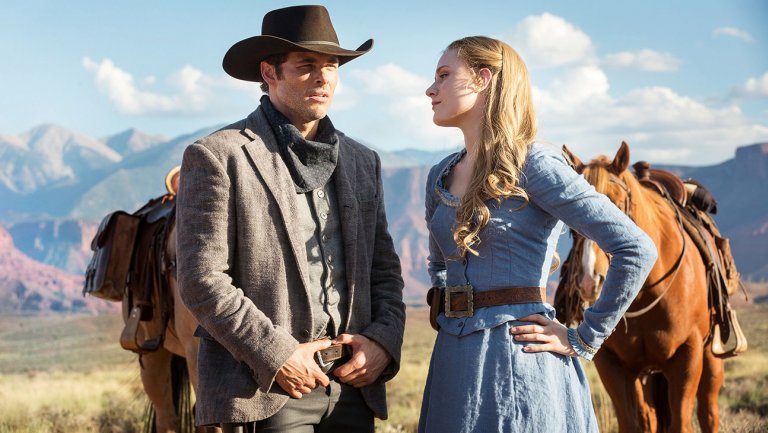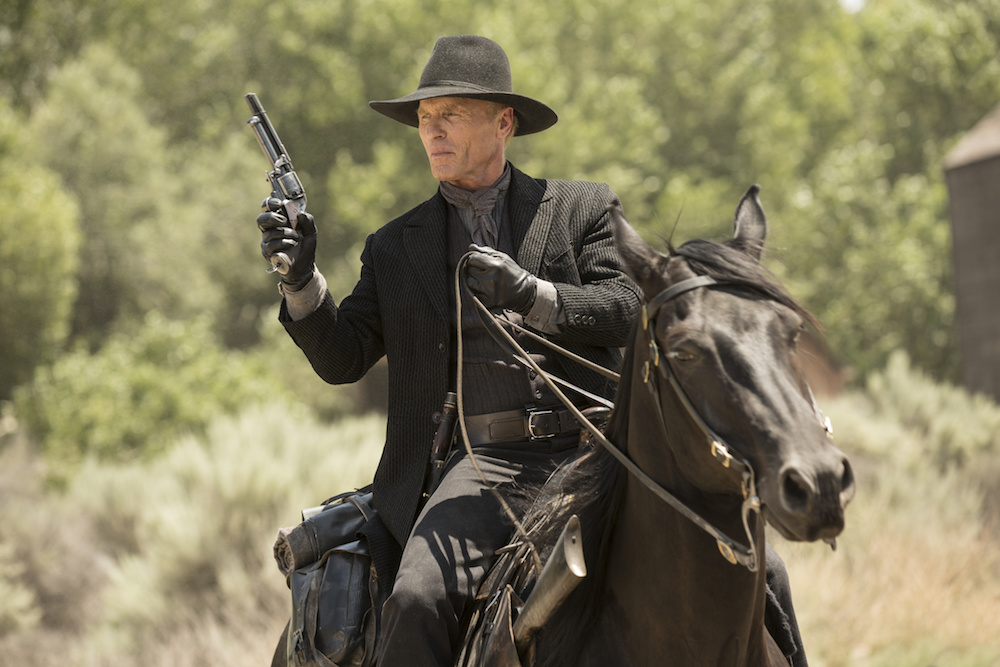“TV is a problem only if you’ve forgotten how to look and listen,” claims a university professor in Don DeLillo’s novel White Noise. He complains that his students are no longer open to the medium; they find television “worse than junk mail… They’re ashamed of their television past. They want to talk about movies.” White Noise was published in 1985, when television programs were regularly criticized for being formulaic, lacking real substance and focusing more on commercial success than artistic profit. In fact, television’s reputation as an artistic medium was so bad that, in 1996, the premium network HBO began running ads with their new slogan: “It’s not TV. it’s HBO.”
But now, the tables have turned. Personally, I have heard countless college students share viewpoints in perfect contradiction to the students in DeLillo’s book; they believe that film is dead, that television has been reborn. Avid fans of Game of Thrones and Mad Men will tell you; while Hollywood got hooked on commercially successful gimmicks like 3D superhero movies, television emerged as the premier platform for long-form storytelling. The “auteur” has been replaced by the “showrunner,” and art house cinemas are losing business to Netflix-streaming laptop computers.
HBO has long been fighting at the front lines of this television revolution. Oz, which debuted in 1997, was the network’s first long-form dramatic series, a dark story about life in prison that could be considered a forerunner in the push for weightier television content. Though Oz achieved little commercial success upon release, it paved the way for widely-acclaimed series like The Sopranos and The Wire. Then, unsurprisingly, the success of these high-quality dramas inspired imitations. The revolution that began on HBO spread across the television channels like static electricity. We saw Lost on ABC, then Friday Night Lights on NBC, followed by Mad Men and Breaking Bad on AMC. Fans and critics alike flocked proudly to their tubes; it was a new century, and the new content was no longer “worse than junk mail.” It was art.
But are we truly living in a “Golden Age” of television? Or is it a gilded age?
Though television may be better than it has ever been, I am too often disappointed by new series that turn out to be as formulaic as they are trendy. It is as if these shows are bouyed by the success of recent gems but still held to the low standards of classic television. This could be said of HBO’s most recent release, Westworld, a big-budget series that the network is banking on being the #NextBigThing. Though HBO’s Game of Thrones has maintained its army of followers, many of the network’s recent debuts—Vinyl, True Detective—have swallowed millions of dollars only to be cancelled in the prime time of their youth. For this reason, argues critic Emily Nussbaum in her New Yorker review of the series, Westworld “can’t just be good—it needs to be a hit, too.”
Unfortunately, Westworld, like those other eventual flops, blew its budget on flash to blind audiences to the sloppiness of its narrative. Critics should be the ones to remind us how to “look and listen” like DeLillo’s professor, to watch television with a critical eye. But for an array of reasons, critics like Nussbaum and the AV Club’s Zack Handlen are largely complacent in the inflation of the medium’s reputation. Though Nussbaum’s review of Westworld raises important questions about the show, it is ultimately as toothless as Handlen’s in its judgment.
Based on the Michael Crichton film from 1973, Westworld is an intriguing offering; the show follows an ensemble of characters involved in a fictional Western-themed amusement park where the wealthy guests can have their way—sexually and violently—with the artificially intelligent “hosts” that populate the expansive artificial frontier. The series is ambitious; it tackles the darker sides of entertainment and human nature, placing the AI robots in center frame and featuring most of the human characters as creepy executives or their bloodthirsty clientele. As the robots slowly gain awareness of their sad situation, they increasingly inspire our empathy; the poor things get shot, stabbed and raped until night falls and their memories are wiped for another day of human amusement.
“The show introduces itself as a science-fiction thriller about cyborgs who become self-aware,” writes Nussbaum, but “then reveals its true identity as what happens when an HBO drama struggles to do the same.” She argues that the series is an attempt at criticizing our sadistic enjoyment of sex and violence in the media, “an exploitation series about exploitation.” The show actually works though, argues Nussbaum, because of its “elegance” and the way it “gets under your skin.” She is not wrong; like its opening credits sequence—needled artificial ligaments and a shiny player piano—the show is often as unnerving as it is stylish.
Similarly, Handlen believes that the first episode of Westworld succeeds because it “never lets the horrors it depicts completely undercut a certain sense of wonder.” He discovers this sense of wonder in the hopeful robotic hosts, and also in himself as he puzzles over the mysteries of the amusement park. However, there is an important distinction to be made between elegance and wonder—while the former is a question of aesthetics, the latter is largely a function of plot. And the plot of Westworld creates a sense of wonder more through formulaic twists than through the emotive eyes of Dolores (the park’s “farmer’s daughter” attraction and the series’ main star).
Specifically, In order to build the foundations of a narrative that could last longer than the first episode’s ninety minutes, Westworld introduces layers of enigma that are clearly intended to reel audiences in without demonstrating any relevance to the rest of the story. For example, there is Ed Harris’ character, “The Man in Black,” who is searching for some kind of hidden objective within Westworld. Apparently, the only way to find this meta-game is to torture the robotic citizens until they divulge any relevant information—The Man in Black scalps a poor cowboy to find a maze hidden under his plastic forehead. Why should we, as an audience, care about this puzzling meta-game? It is not related to anything else that happens in the episode; the subplot only exists to develop a pervasive sense of conspiracy, as if beneath the main narrative there is something “bigger” going on. This tactic has been popular mostly in sci-fi and fantasy programs since Lost employed it to keep viewers intrigued for 121 cliffhanging episodes. The series constructed endless layers of mysteries while promising to reveal every secret, to eventually tie up each of its loose-ends. Spoiler alert: at Lost‘s finale, most of the series puzzles went entirely unsolved. If the generally held consensus is that a show is successful as long as it keeps audiences watching; I would argue that television succeeds only when a series keeps its promise to tell a complete and satisfying story. Lost‘s failure in this respect is enough to make me “wonder” about where Westworld is headed.
Though Handlen agrees that The Man in Black is “an element that doesn’t quite work,” the lack of real plot development only makes him nervous for the episodes to come. He perceives the pilot as a success even though it functions only as extended exposition, more like the first part of a riddle than the first chapter of a full story. I find this logic confusing, as you would never endorse a riddle without knowing its solution—one half is meaningless without the other. Although she is more hesitant to demonstrate outright support of the series, Nussbaum similarly advises that we keep watching.
Primarily, Nussbaum criticizes the show for making use of the same exploitation that it claims to denounce—patriarchal violence against women in entertainment tailored to straight men. This is a valid concern; social satire can be even more problematic than its targets when it takes societal flaws to extremes without delivering the message that they are, in fact, flaws. Nussbaum worries that Westworld rides dangerously close to this type of ambiguity. She asks, “Is Westworld the blinkered macho fantasy, or is that ‘Westworld’?” This is the kind of scalpel-sharp critique that is too often lacking in television criticism; looking past the face value of a show to dissect it under the light of a larger political framework.
But the way that Nussbaum follows her query reveals why serious critique of the medium can be so challenging: “It’s a meta-cliffhanger with its own allure,” she writes, “leaving us only one way to find out: stay tuned for next week’s episode.” Handlen makes a similar statement in his review, sharing that he is uncertain whether or not the story will be sustainable, but is “eager to find out.”
This is the paradox of television critique; a critic’s job is to swallow works of art whole, to digest them completely in oder to judge them fairly, but television is rarely complete. When a show has a strong following and commercial success, it can afford to close its narrative arcs and tell a whole story. But many series, like Lost, and probably Westworld, intentionally leave plot-lines soaring and mysteries unsolved so as to keep audiences hooked. How is a critic to judge a work that might be nothing but bait, that will only take off its mask after years of seasons have come and gone? Nussbaum and Handlen are somewhat critical of Westworld, but they hold their tongues in light of the fact that the series is only getting started, that their worries could be assuaged by future episodes. However, this position is insufficient, because future episodes will only exist if the audience responds positively to early episodes. In this way, television critics have their hands tied; they cannot fairly judge a show until it is finished, but still must play a role in whether or not that completion ever occurs. Netflix’s all-in-one season release model would help critics navigate this issue, but HBO has maintained its commitment to the classic episode-per-week trickle.
Moreover, the problem is only complicated by the fact that directors and writers are often shuffled between episodes and seasons—Westworld, for example, has had a unique creative team for each installment. Where does a singular work of television end and the next one begin? Handlen has written reviews of each Westworld episode one by one, becoming increasingly critical as HBO reveals more of its hand. “Spending hours showing us a curtain might hold our attention,” he writes in his review of episode five, “but sooner or later, you have to pull the curtain back.” Of course, penning piecemeal reviews like this limits a critic’s ability to judge the whole picture at once. On the other hand, Nussbaum’s review covers the first four episodes, an arbitrary number that is still too few to judge Westworld’s complete narrative, yet simultaneously too many to treat the episodes like individual works.
It is tempting to submit the movie Ex Machina as the converse of Westworld (the film about artificial intelligence is subtle where Westworld is exploitative and narratively-taut where the show is tangled). It is equally tempting to entirely dismiss the show because of the painful performances from two of its actors, Simon Quarterman and Sidse Babett Knudsen, who play important Westworld executives (while he overacts enough to make Anthony Hopkins seem like a robot, she comes off colder than the robots due to her monotonic attempt at an American accent). But to make such warranted criticisms would be unfair to an artwork that is still unfinished. There is only one way to find out the truth about Westworld, and that is to pay for an expensive premium network subscription and watch one episode each week until most fans lose interest and the series is canceled. Only then will it be finished and we can criticize fairly in retrospect. But do not be discouraged! We are lucky to be living in the Golden Age of television.





11,283 Comments
Full stack classes
Best Full Stack classes and courses in Pune Maharashtra India
Full stack developers have the ability to work on both the front end and back end of a project, making them versatile and capable of handling various aspects of web development. By understanding the full development stack, these developers can work seamlessly across different parts of a project, leading to increased efficiency in development and problem-solving.
Companies often prefer hiring full stack developers as they can handle multiple tasks, reducing the need to hire separate specialists for front end and back end development.
Full stack developers can work on all aspects of a project, reducing dependencies on other team members and potentially speeding up the development process.Having knowledge of both front end and back end technologies gives full stack developers a holistic view of the project, enabling them to make better decisions and create more cohesive solutions.
Full stack developers are in high demand in the tech industry, and mastering both front end and back end technologies can lead to exciting career opportunities and growth.
Overall, being a full stack developer can be rewarding both professionally and personally, offering a wide range of opportunities and the chance to work on diverse and challenging projects.
https://www.sevenmentor.com/full-stack-training-institute-in-pune.php
Many thanks with regard to supplying current improvements concerning the issue, We anticipate study much more. 서울출장마사지
I have to administrative which i carry out as if your weblog. It’s not as thousands other folks, but somewhat various rendering it far more intriguing and readable. Thank you companion for conducting a good task. Only one consider – include your mention of an individual articles 출장안마
This design is incredible! You obviously know how to keep a reader amused. Between your wit and your videos, I was almost moved to start my own blog (well, almostHaHa!) Great job. I really loved what you had to say, and more than that, how you presented it. Too cool! 출장안마
Thank you for sharing this insightful post! Your expertise and knowledge are truly appreciated. I look forward to reading more of your content. I hope everyone gets a chance to visit my website: WIN55
After study a few of the websites in your internet site now, and I really like your way of blogging. I bookmarked it to my bookmark website list and will also be checking back soon. Pls look at my web site at the same time and let me know how you feel. 부평쓰리노
nowadays we would always use eco-friendly stuffs like, eco friendly foods, shoes and bags:: 레플리카
Hi this is somewhat of off topic but I was wondering if blogs use WYSIWYG editors or if you have to manually code with HTML. I’m starting a blog soon but have no coding knowledge so I wanted to get guidance from someone with experience. Any help would be greatly appreciated! dewatogel asia
hi!,I like your writing very much! share we communicate more about your post on AOL? I need a specialist on this area to solve my problem. May be that’s you! Looking forward to see you. 레플리카
Fabulous article. That blog post impinges on a whole lot of immediate need conflicts of the contemporary culture. You cannot be uninvolved to help you a lot of these conflicts. It blog post grants ideas and even creative concepts. Highly insightful and even helpful. 서울출장마사지
Our purpose in conducting scam verification is to ensure the safety of online site users. This process allows us to recommend secure playgrounds and slot sites, enabling users to enjoy cash gaming without fear of scams. Website: 먹튀사이트 검증
I’m curious to find out what blog system you’re utilizing? I’m having some small security problems with my latest website and I would like to find something more risk-free. Do you have any recommendations? Moviesjoy plus